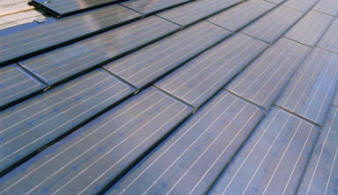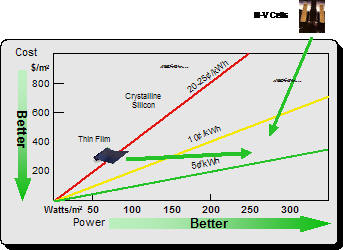Wakonda
Technologies is developing proprietary solar electric technology that is
more efficient than crystalline silicon and lower in cost than thin film
alternatives.
Wakonda combines
the world’s most efficient photovoltaic materials with a flexible
substrate that enables high volume manufacturing using commercial
processes. The result:
-
•Costs competitive with conventional electricity
-
•Elimination of rare and toxic raw materials
-
•Wide variety of product forms
Our technology
will dramatically improve the availability of solar energy for both
critical military and broad commercial applications, making it possible
for everyone to harness
The Power That Resides in Nature™.
The Power That Resides in Nature™.

Solar electricity
can significantly reduce greenhouse gas emissions.
Solar energy is
most effective when electricity is needed most - during the heat of the
day.
Solar enabled
peak load reduction will improve the reliability of the grid and reduce
the need for additional centralized power generation.
Solar power is
generated at the point of use, eliminating transmission and distribution
losses.
Solar Energy is SMART
Energy.
